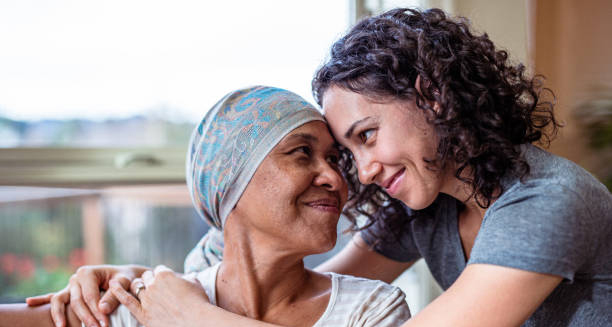Complications and Recovery from Cancer
Complications and recovery from cancer depend on many factors, including the type of cancer, its stage, treatment used, and the patient’s overall health. While many people recover fully, complications of cancer can be physical, emotional, or long-term.
Short-Term Complications
- Fatigue is one of the most common and persistent side effects.
- Infection risk rises during chemotherapy or after surgery due to lowered immune defences.
- Nausea, vomiting, and appetite loss affect many undergoing chemotherapy or radiation.
- Hair loss, skin changes, and mouth ulcers may also occur, depending on treatment.
Long-Term Complications
- Organ damage, especially to the heart, lungs, or kidneys, may result from certain drugs or radiation.
- Infertility may occur depending on the patient’s age and treatment type.
- Cognitive effects (sometimes called “chemo brain”) include memory and concentration difficulties.
- Second cancers can develop years after treatment due to the effects of chemotherapy or radiation.
- Lymphoedema (swelling due to lymph node removal) is common in breast and pelvic cancers.
Emotional and Psychological Complications
Cancer can cause depression, anxiety, PTSD, and body image issues. Support from counsellors, therapists, and support groups is vital. Many patients experience fear of recurrence even after successful treatment.
Recovery and Survivorship
Recovery involves physical healing, emotional adjustment, and lifestyle changes. Regular follow-ups monitor for recurrence, side effects, and new symptoms. Many patients benefit from:
- Rehabilitation and physiotherapy
- Nutritional support
- Survivorship programmes
- Return-to-work planning
- Palliative care in advanced cases for quality of life
Complications and Recovery from Cancer
With early diagnosis and the right treatment, many cancers are now curable or manageable as chronic conditions. Holistic care during and after treatment improves both survival and quality of life.
Understanding complications and recovery from cancer helps patients prepare, seek support, and stay proactive about long-term health.


